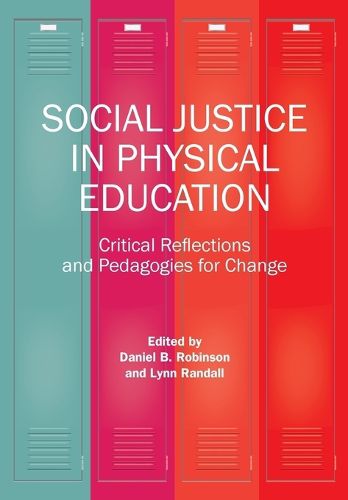Readings Newsletter
Become a Readings Member to make your shopping experience even easier.
Sign in or sign up for free!
You’re not far away from qualifying for FREE standard shipping within Australia
You’ve qualified for FREE standard shipping within Australia
The cart is loading…






The physical education classroom can be a site of discomfort for young people who occupy marginalized identities, and a place where the normative beliefs and teaching practices of educators can act as a barrier to their inclusion. This timely edited collection challenges pre-service and in-service teachers to examine the pedagogical practices and assumptions that work to exclude students with intersecting and diverse identities from full participation in physical and health education. The contributors to this volume-who consist of both experienced and emerging scholars from Canada, the United States, the United Kingdom, Australia, and New Zealand-approach their topics from a range of social justice perspectives and interpretations. Covering a variety of areas including (dis)ability, gender, sexuality, race, social class, and religion, Social Justice in Physical Education promotes a broader understanding of the sociocultural, political, and institutional practices and assumptions that underlie current physical education teaching. Each chapter encourages the creation of more culturally relevant and inclusive pedagogy, policy, and practice, and the discussion questions invite readers to engage in critical reflection. Mapping a better way forward for physical and health education, this text will be an invaluable resource for courses on social justice, diversity, inclusive education, and physical education pedagogy.
$9.00 standard shipping within Australia
FREE standard shipping within Australia for orders over $100.00
Express & International shipping calculated at checkout
The physical education classroom can be a site of discomfort for young people who occupy marginalized identities, and a place where the normative beliefs and teaching practices of educators can act as a barrier to their inclusion. This timely edited collection challenges pre-service and in-service teachers to examine the pedagogical practices and assumptions that work to exclude students with intersecting and diverse identities from full participation in physical and health education. The contributors to this volume-who consist of both experienced and emerging scholars from Canada, the United States, the United Kingdom, Australia, and New Zealand-approach their topics from a range of social justice perspectives and interpretations. Covering a variety of areas including (dis)ability, gender, sexuality, race, social class, and religion, Social Justice in Physical Education promotes a broader understanding of the sociocultural, political, and institutional practices and assumptions that underlie current physical education teaching. Each chapter encourages the creation of more culturally relevant and inclusive pedagogy, policy, and practice, and the discussion questions invite readers to engage in critical reflection. Mapping a better way forward for physical and health education, this text will be an invaluable resource for courses on social justice, diversity, inclusive education, and physical education pedagogy.